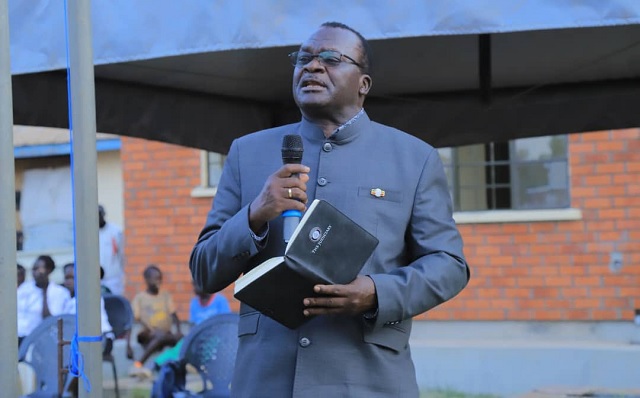
Agago, Uganda | THE INDEPENDENT | Chief Justice Alfonse Owiny Dollo, has advised leaders in Acholi to take action against dealers in charcoal trade.
In May, President Museveni signed an executive order banning tree cutting for commercial charcoal production in Northern Uganda. This has led to an increase in the impounding of trucks carrying bags of charcoal in the sub-region.
During the open court day held in Agago on Thursday, Dollo said the executive order was just an alert on a law that already existed, which the locals and leaders are not implementing.
The National Climate Change Act of 2021, Dollo says, allows anyone in the country to send anyone or any organization anywhere in the country to court for cutting trees from any part of the country.
Section 26 (1) of the National Climate Change Act 2021 states that a person may apply to the High Court for relief against the Government, an individual, or a private entity whose action or omission threatens or is likely to threaten efforts towards adaptation to or mitigation of climate change.
Section 2 (a) states that in addition to any other orders it may deem appropriate, the high court may make orders to prevent” stop or discontinue the act or omission that is the subject of the application.
Dollo says it is ineffective for leaders to arrest charcoal dealers from the roadside, yet the law empowers them to effect arrest from the forest where the trees are being cut.
He explains that by arresting charcoal dealers from the roadside, the leaders, such as GISOs and RDCs are enabling the massive tree-cutting to continue, and the public can sue them.
Dollo said that they could sue the sub-county, central government, and the district for not doing what they should have done to protect the environment, adding that the court cannot act if the public does not take the case to court.
He advised the LCV Chairperson of Agago to rally other district leaders to mobilize the chairpersons to jointly bring a public interest suit in the high court in Gulu so that the fight against tree cutting produces tangible results.
Leonard Ojok, the LCV of Agago district, commended the chief justice for making the law clear and requested that the judiciary set aside a budget to facilitate community sensitization.
According to Ojok, the court has mainly been acting after crimes have been committed, adding that sensitizing the population would make them aware of the law and the rate of crime would reduce.
Acholi Sub-region has witnessed an increase in the destruction of forest cover for the growing demand for charcoal and timber lately despite several bans issues since 2016.
Agago district is one of the districts with the highest number of charcoal dealers, with an estimated 100 trees cut daily.
In June 2022, GIZ released a preliminary report indicating that Agago district lost 93 hectares, an equivalent of 229.8 acres of trees between 2001 to 2020, mainly to charcoal production and farming.
*****
URN
 The Independent Uganda: You get the Truth we Pay the Price
The Independent Uganda: You get the Truth we Pay the Price




True,why are there no implementation?